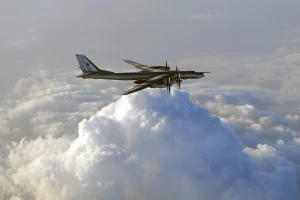
War on Russian territory. How new strategy can bring Ukraine's victory closer
Last week's double sabotage on the Baikal–Amur Mainline in Siberia was one of Ukraine's most effective actions behind enemy lines. For the first time, the information effect of a strike on a symbolic object was combined with a large immediate economic loss
This is stated in an article by the Kyiv Security Forum (KSF).
Both railway lines from Europe to Russia's Far East - the Baikal–Amur Mainline and Trans-Siberian Railway - were notorious for freight train congestion even before the attack on Ukraine and the turn of the Russian economy towards China. Undoubtedly, the closure of the Baikal–Amur Mainline for 1-2 days caused large losses, comparable to those caused by dozens of drones attacking Moscow.
As for the information effect, it is comparable to the periods of last summer, when foreign units of Ukraine's Defense Intelligence invaded the Belgorod and Bryansk regions of Russia, and the Air Force shot down two Russian aircraft and two helicopters in the skies of Bryansk region.
According to KSF experts, asymmetric strikes deep into the enemy's rear should be one of the important elements of a new strategy in the war, the need for which is being voiced aloud by the Ukrainian authorities and the public.
Ukraine, on the one hand, has exhausted its previous "conventional" strategy due to the lack of air superiority. The aggressor, on the other hand, has shown a willingness to incur any human and economic losses in order to keep the occupied areas. The Kremlin has decided to finally concentrate its economy on the war against Ukraine.
The article emphases that in this situation, an asymmetric war on Russian territory has the following advantages:
● It is geostrategically beneficial for Ukraine. The aggressor is interested in concentrating the war on a small territory of Ukraine (covered by its air capabilities), using its super-deep rear to safely locate air bases, warehouses, and training centres.
● Hybrid counter-invasion is perhaps the only way available to Ukraine to seize the initiative. Ukrainians can compensate for the acute shortage of air strike capabilities with reconnaissance and sabotage capabilities against military facilities in Russia.
● Having broken out into the sparsely populated areas of Russia, Ukraine's troops and special services will be able to neutralize the enemy's numerical superiority and disrupt its military economy. Experts agree that the Kremlin lacks the manpower to even break through the current frontline, let alone to conduct anti-sabotage and air defense across the entire territory.
● Actions deep inside the enemy's country will exploit Russia's hyper-centralized economy and regional and ethno-religious inequalities. Most Russian regions are too bloodless under Putin's rule to resist the hybrid war, organize civil resistance to Ukraine, rebuild what has been destroyed, etc.
"Of course, the war on Russian territory has a number of drawbacks compared to Ukraine's previous (exhausted) strategy," the authors write.
The authors stress that these shortcomings are not important in Ukraine's current situation, but they are worth mentioning:
● Western partners, as well as the Ukrainian leadership, sometimes politically correct in stating that they do not support the extension of the defensive war to Russian territory. This, however, does not prevent American and Eastern European politicians from praising Ukraine on a weekly basis for destroying Russia's military potential.
● Sabotage and other hybrid actions behind enemy lines require long, costly, thorough intelligence and organizational and personnel preparation - incommensurate with, say, tactical actions on the frontline such as the heroic Krynky landing in Kherson region. However, these hybrid efforts are significantly less than achieving Ukraine's air superiority or breaking through the Russian front in Zaporizhzhia.
● The Kremlin will use Ukraine's hybrid counter-invasion to justify the war in the eyes of Russians. However, this factor will become much less important when Putin announces a new wave of mobilization and ordinary Russians feel more of the redistribution of public spending from social protection and healthcare to the war, which Moscow has already begun.
- News












































